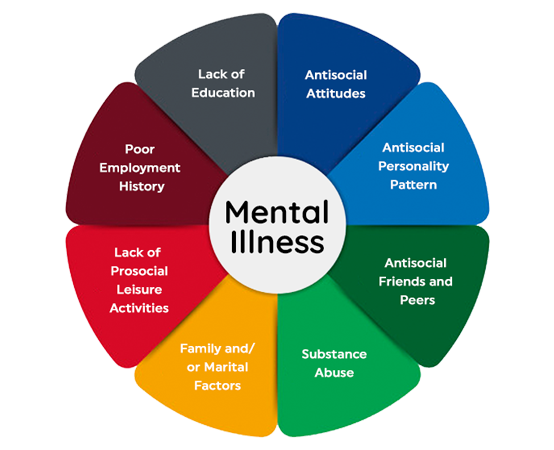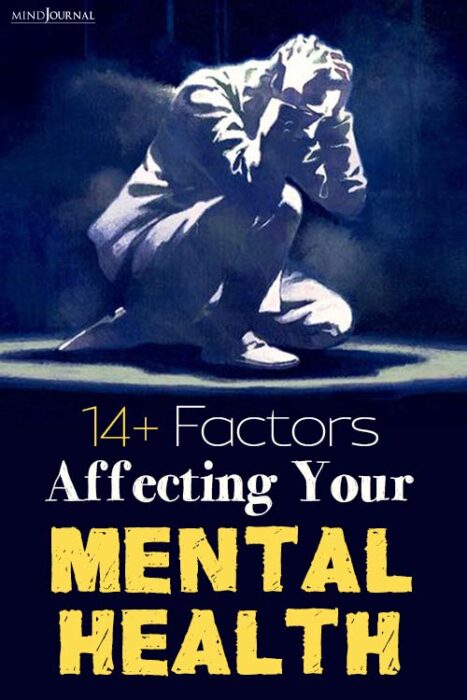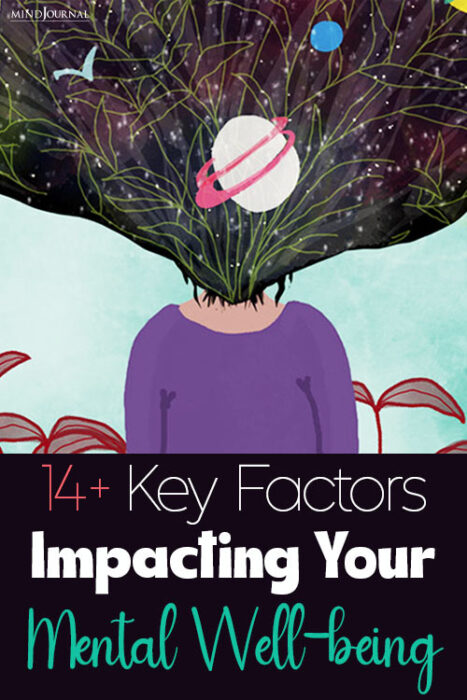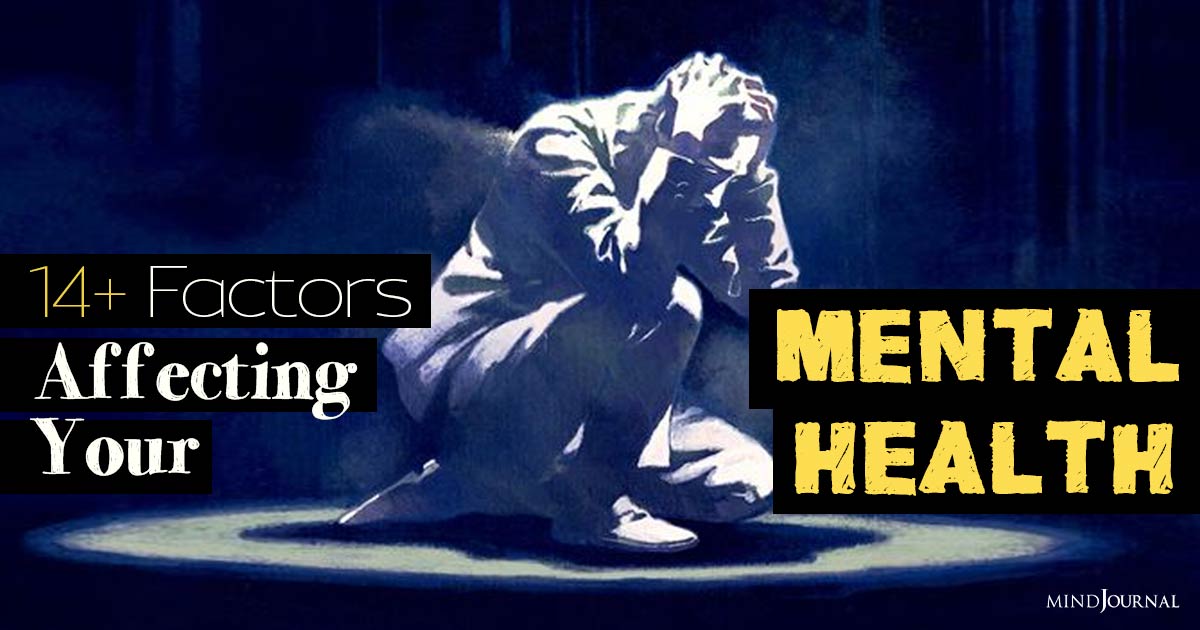Feeling worried, stressed, or not yourself due to life’s challenges? You’re not alone! There are factors affecting mental health, and we all need some extra care sometimes. Take a look at what they are!
And did you know? There are three factors of mental health: stuff going on inside our bodies (biological), the way we connect with others (social), and the thoughts swirling around in our heads (psychological).
Now, we’re all different and life throws all sorts of things at us, whether we’re kids, teenagers, adults, or older folks. That means what makes us feel good or not-so-great can change as we grow.
So, today, let’s psychological factors affecting mental health – you know, those thoughts and feelings that can have a big impact on how we’re doing up there in the noggin. Ready to learn more? Keep reading!
Read more here: How Does Mental Health Affect Physical Health? Unlocking The Underrated Connection To Well-Being

What Causes Mental Health Problems? 6 Alarming Psychological Factors Affecting Mental Health
1. Adverse Childhood Experiences
The adage “early experiences leave a lasting impact” holds true, extending its influence to one’s mental well-being as well.
The childhood trauma you go through as a kid, like tough times, abuse, or feeling ignored, can actually shape how you feel as a grown-up.
If you had a rough time as a kid, it might make it tricky to have good relationships later on. And dealing with your feelings or handling stress might not be a walk in the park either.
So, those early experiences, whether they were good or not-so-great, can really leave a mark on how you’re feeling down the road.
Read 10 Mental Health Tattoos That’ll Empower You To Overcome Your Struggles
2. Social Isolation Or Loneliness
Humans are naturally wired to be social creatures – we’re in our element when we’re connected with others. It’s like our mental groove.
But, you know, when that sense of connection starts to fade and we’re left with that “all alone” feeling, it’s like our mental well-being takes a hit.
When you’ve got those strong bonds with your family, friends, and even your wider community, it’s like you’re getting a boost of positivity for your mind.
However, if you find yourself stuck in the isolated zone, that’s when things can get a little tricky for your mental health – something just feels off. So, remember, staying socially connected isn’t just a nice-to-have, it’s a mental health power move.
3. Loss and Bereavement
Losing a loved one can trigger a range of emotions and affect mental health. Grief and bereavement are natural responses to loss, but the intensity and duration of these emotions can impact an individual’s mental state.
It’s essential to seek support and engage in healthy coping mechanisms during these times.
4. Stress
While stress is a common aspect of life, excessive or prolonged stress can have adverse effects. Elevated stress levels have the potential to contribute to conditions such as anxiety, depression, and various other mental health disorders.
Learning effective stress management techniques, such as mindfulness, relaxation exercises, and time management, can mitigate these effects.
5. Adult Challenges (Bullying or abuse)
Mental health problems can arise due to a variety of factors, some of which might surprise you. As we journey through adulthood, we encounter numerous challenges that can have a profound impact on our mental well-being.
For instance, situations like domestic violence, bullying, and other forms of abuse can wield considerable influence over our psychological state. The aftermath of such experiences can often manifest as feelings of fear, anxiety, and a diminished sense of self-worth.
However, it’s important to note that while these challenges can be daunting, there are effective ways to address and navigate them. Seeking professional assistance and guidance can be a pivotal step in managing these difficulties and cultivating a sense of resilience.
Read more here: Causes Of Mental Health Issues: 6 Common Risk Factors, According To Science
6. Physical Health
Recognizing the relationship between your mind and body is important. It’s crucial to note that enduring physical health conditions can significantly impact one’s mental well-being.
Coping with persistent pain or prolonged illnesses can give rise to emotions such as frustration, a sense of powerlessness, and potentially even trigger depressive states.
It becomes evident that a comprehensive approach to well-being is necessary, one that takes into account both the physical and mental facets. By acknowledging and addressing this interconnectedness, we can better promote overall health and wellness.
Some Other Factors That Affect Mental Health
- Facing discrimination and stigma, like racism
- Dealing with social disadvantages, poverty, or debt
- Being a long-term caregiver for someone
- Struggling with drug and alcohol misuse
- Coping with unemployment or job loss
- Dealing with homelessness or poor housing
- Sleeping issues like insomnia
- Shared genetic risk factors
- Confidence and self-esteem
- Relationship status
This World Mental Health Day 2023, here are some ways to maintain a good mental health:
Five Ways To Maintain Good Mental Health:
- Mindful Movement and Exercise: Engaging in regular physical activity not only benefits your body but also has a positive impact on your mental well-being. Activities like yoga, tai chi, or simply taking mindful walks can reduce stress, improve mood, and promote relaxation.
- Creative Expression: Exploring creative outlets such as art, music, writing, or crafting can provide a therapeutic release for emotions and stress. Creating something meaningful allows you to channel your thoughts and feelings constructively.
- Social Connection: Cultivating and maintaining healthy relationships is essential for mental health. Regular interactions with friends, family, or support groups provide a sense of belonging, reduce feelings of isolation, and offer opportunities for emotional support.
- Mindfulness and Meditation: Practicing mindfulness and meditation techniques can help manage stress, anxiety, and negative thought patterns. These practices encourage living in the present moment, promoting self-awareness and fostering a calm and balanced mental state.
- Quality Sleep: Prioritizing consistent and restful sleep is vital for mental well-being. Establishing a bedtime routine, creating a comfortable sleep environment, and ensuring sufficient sleep duration contribute to improved mood, cognitive function, and overall mental resilience.
Read more here: 13 Characteristics Of A Mentally Healthy Person
Keeping these 16 psychological factors affecting mental health in mind, we hope that you can navigate the complexities of life with heightened awareness and empathy. Remember, recognizing these influences is the first step towards fostering a healthier mindset and supporting those around you!
Frequently Asked Questions (FAQs)
What are the factors affecting mental health?
The factors affecting mental illness include genetics, environmental stressors, traumatic experiences, and imbalances in brain chemistry.
What are the six factors of mental health?
The six factors that affect mental health encompass emotional well-being, social connections, psychological resilience, meaningful purpose, physical health, and balanced cognitive functioning. These factors collectively contribute to a person’s overall mental wellness.
What are 5 psychological factors affecting mental health?
Five psychological factors that affect health include stress, anxiety, depression, social support, and personality traits. These factors can influence physical well-being and overall health outcomes.










Leave a Reply
You must be logged in to post a comment.